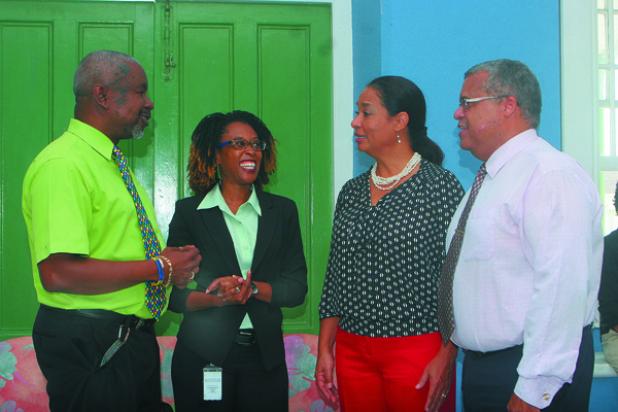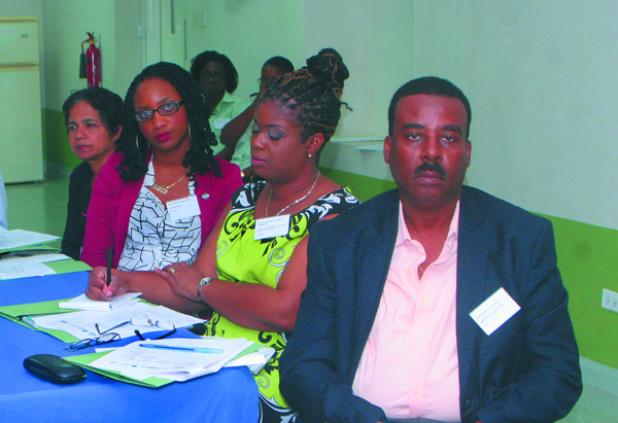
(L-R) Chief Medical Officer, Dr. Kenneth George; Director of the Leptospira Laboratory, Dr. Marquita Gittens; IICA Representative in Barbados, Ena Harvey and Chief Veterinary Officer, Dr. Mark Trotman, sharing a few words at the end of the workshop launch.

Delegates came from all over the region to attend the workshop.
Joint Lepto fight
CARIBVET, the European Union, Inter-American Institute for Co-operation on Agriculture (IICA), Pan-American Health Organisation (PAHO), the University of the West Indies (UWI) and the Ministry of Health of Barbados, have all formed an alliance in hosting a training workshop to aid in the accurate diagnosis of Leptospirosis in the Caribbean.
The training has come in a time which is just before the rainy season, where there tends to be a larger number of outbreaks of the disease. The importance of having such a training regime manifests itself through the many cases in which the disease is often misdiagnosed, due to its tendency to appear like other common diseases, such as dengue, malaria, chikungunya and the flu.
Speaking in this vein was IICA Representative in Barbados, Ena Harvey, who stated that leptospirosis is largely under-reported, highlighting the need for training. She continued to say that the disease is mostly an occupational hazard, so much so that it is known as the “cane cutters disease”. This training, she says, will introduce trainees to the principles and methodologies of diagnosing leptospirosis, and thereby establish a solid groundwork in agricultural safe practices.
Representing the Ministry of Health was Chief Medical Officer, Dr. Kenneth George. Dr. George noted that leptospirosis is not considered a public health priority, and so, little has been done in its surveillance, control and research.
Also alluding to the fact that the disease is frequently misdiagnosed, Dr. George stated that correct diagnosis depends heavily on having adequate laboratory equipment and an efficient lab service. The established lab at the Queen Elizabeth Hospital is dated back to 1979.
The workshop, Dr. George, believes has the transformative capacity to redesign the drug landscape for humans and animals, and the application of test allows countries to improve in-house diagnostic capabilities.
The technique in which attendees will be schooled is the Microscopic Aggulation Test for Leptospirosis (LMAT). This technique, according to one if the trainers, Director of the Leptospira Laboratory, Dr. Marquita Gittens, has been around for quite some time, and will soon be fully adopted in the Caribbean as it is an important tool.
